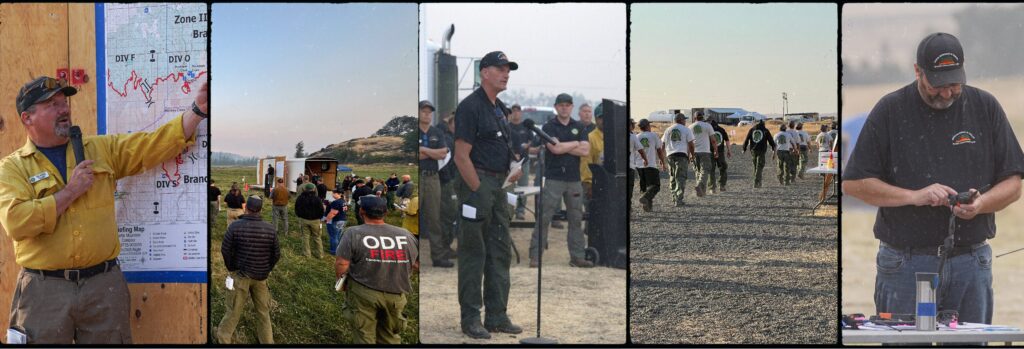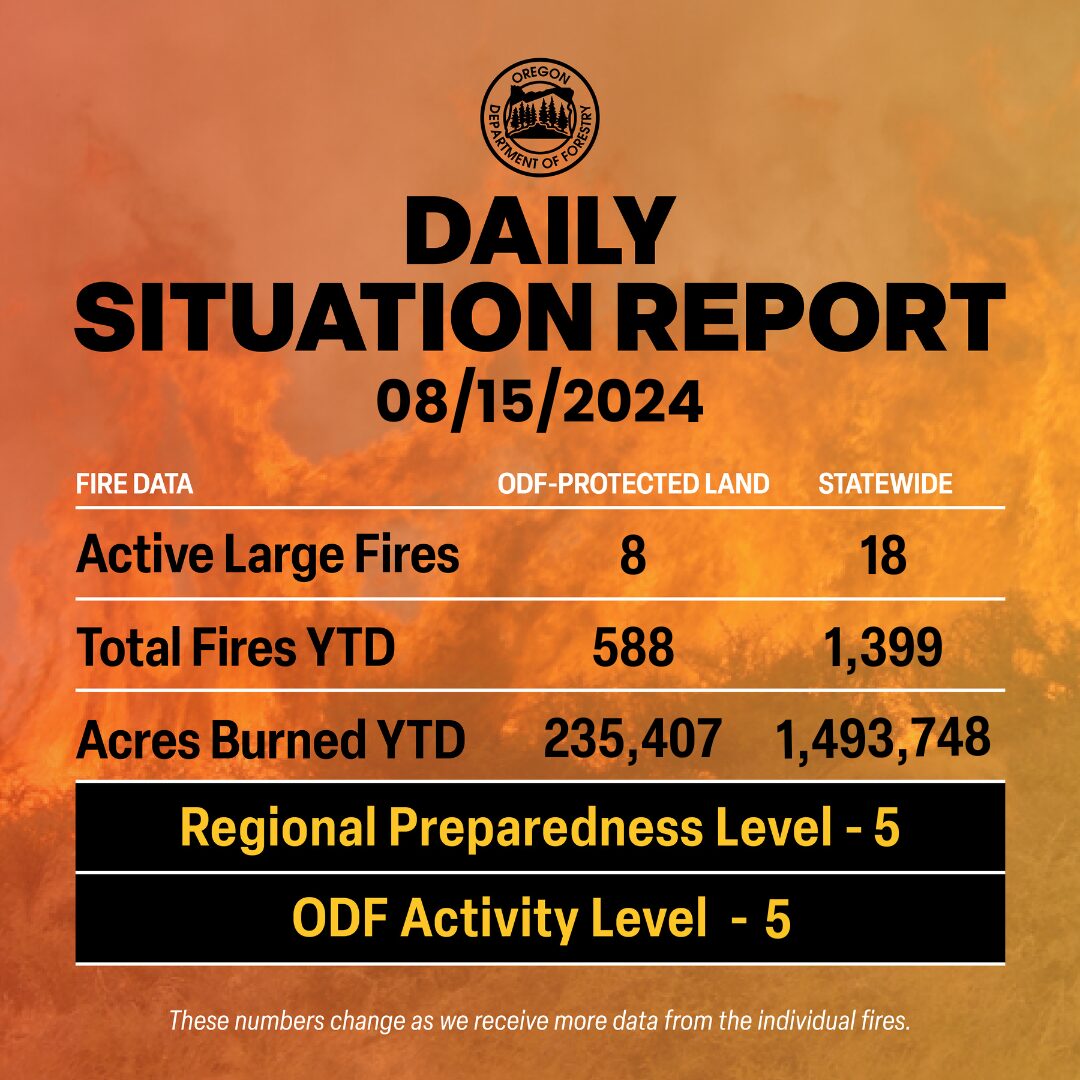ODF Incident Management Teams
- Team 1 is in command of the Lane 1 Fire (ODF South Cascade District). Updates available on the incident’s Facebook page.
- Team 2 is in unified command of the Dixon Fire (Douglas Forest Protective Association) with OSFM Green Team. Updates available on the incident’s Facebook page.
- Team 3 is on rotation.
ODF Priority Fires
| FIRE NAME | TOTAL ACRES | ODF ACRES | CONTAINMENT | LOCATION | COMMAND |
| Lane 1 | 24,592 | 9,112 | 31% | East of Cottage Grove | ODF IMT 1 |
| Dixon | 1,997 | 1,123 | 4% | 2 miles SE of Tiller | ODF IMT 2/ OSFM Green Team |
| Town Gulch | 18,188 | 1,665 | 79% | 24 miles E of Baker City | SA Team 2 |
| Crazy Creek | 85,892 | 7,372 | 79% | 16 miles E of Paulina | CA Team 1 |
| Battle Mountain Complex | 182,951 | 71,999 | 90% | West of Ukiah | SW Team 3 |
| Falls | 151,666 | 6,273 | 89% | 20 miles NW of Burns | NW Team 2 |
| Telephone | 53,999 | 4,218 | 65% | 16 miles N of Burns | NW Team 2 |
| Sandstone | 696 | 0 | 0% | 9 miles SE of Ripplebrook | NR Team 2 |
There are approximately 9,227 personnel assigned to the 18 large fires across the state, not including many of the local and agency government employees, landowners, forestland operators, and members of the community who are contributing every day.
ODF Highlight: An Incident Management Team (IMT) is a group of ICS-qualified personnel consisting of an Incident Commander, Command and General Staff, and personnel assigned to other key ICS positions. An IMT provides a command and control infrastructure in order to manage all elements associated with complex incidents. An IMT is mobilized when a fire becomes larger than the local district can manage while also needing to respond to other fires that occur in their district.
The 1955 fire season revealed a gap in Oregon’s wildfire response capacity—a trained, qualified team of people able to come in and handle major fires when the incident management needs exceeded the capabilities of local resources. In 1956, ODF’s first incident management team deployed to do just that.
Since then, ODF’s three IMTs have been deployed in state nearly 200 times. About a quarter of those deployments have been in just the past decade, corresponding with the increase in wildfire complexity and intensity we’ve been experiencing in Oregon. The Oregon Department of Forestry has three Type 1 IMTs. The agency has deployed an IMT seven times in the last month and a half.
While the majority have been wildfire incidents, our IMTs are all-hazards qualified and have responded to a variety of other emergencies. In recent years, we supported Curry County’s response to a cyber security incident and Lane County after a large ice storm. Early in the pandemic, our team members were tasked with helping establish the incident command structure necessary to sustain the state’s response to COVID-19.

Weather: Thunderstorms will continue spreading north and east through Friday. Storms become wetter beginning this afternoon generating moderate or heavy rain. Also expect moderately strong outflow winds. Cooler temperatures with breezy general winds continue through early next week. Western Oregon PSAs have the best chance for wetting rain Saturday evening followed by western Washington PSAs on Sunday. East-central and southeast Oregon will be warm, dry, and windy both days. Saturday afternoon and evening a cold front will cross from south to north and is trending stronger.
Prevention: Even with the moderating weather, Oregon is still incredibly dry. Know the fire danger level of the areas where you live, work and play, and follow all local restrictions on burning, equipment use, campfires and other activities that can start wildfires. Find danger levels and restrictions across the state here.
Resources
- ODF wildfire blog and Public Fire Restrictions/Danger Levels map
- Regional situation report and national situation report
- Inciweb (information, photos, videos, and maps from specific incidents)

